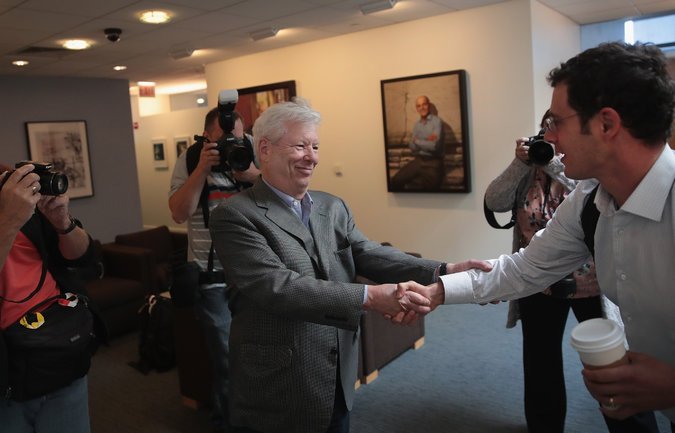Richard Thaler has just won an extremely well deserved Nobel Prize in economics. Thaler took an obvious point, that people don’t always behave rationally, and showed the ways we are systematically irrational.
Thanks to his work and others’, we know a lot more about the biases and anomalies that distort our perception and thinking.
Before Thaler, economists figured it was good enough to proceed as if people are rational, utility-maximizing creatures. Now, thanks to the behavioral economics revolution he started, most understand that’s not good enough.
But Thaler et al. were only scratching the surface of our irrationality. Most behavioral economists study individual thinking. They do much of their research in labs where subjects don’t intimately know the people around them.
It’s when we get to the social world that things really get gnarly. A lot of our thinking is for bonding, not truth-seeking, so most of us are quite willing to think or say anything that will help us be liked by our group.
This is where Alan Jacobs’s absolutely splendid forthcoming book “How to Think” comes in. If Thaler’s work is essential for understanding how the market can go astray, Jacobs’s emphasis on the relational nature of thinking is essential for understanding why there is so much bad thinking in political life right now.
Jacobs makes good use of C. S. Lewis’s concept of the Inner Ring. In every setting — a school, a company or a society — there is an official hierarchy. But there may also be a separate prestige hierarchy, where the cool kids are. They are the Inner Ring.
There are always going to be people who desperately want to get into the Inner Ring and will cut all sorts of intellectual corners to be accepted.
As Lewis put it, “The passion for the Inner Ring is most skillful in making a man who is not yet a very bad man do very bad things.”
People will, for example, identify and attack what Jacobs calls the Repugnant Cultural Other — the group that is opposed to the Inner Ring, which must be assaulted to establish membership in it.
Other people will resent the Inner Ring, and they will cut all sorts of intellectual corners in order to show their resentment. These people are quick to use combat metaphors when they talk about thinking (he shot down my argument, your claims are indefensible). These people will adopt shared vague slurs like “cuckservative” or “whitesplaining” that signal to the others in the outsider groups that they are attacking the ring, even though these slurs are usually impediments to thought.
Jacobs notices that when somebody uses “in other words” to summarize another’s argument, what follows is almost invariably a ridiculous caricature of that argument, in order to win favor with the team. David Foster Wallace once called such people Snoots. Their motto is, “We Are the Few, the Proud, the More or Less Constantly Appalled at Everyone Else.”
Jacobs nicely shows how our thinking processes emerge from emotional life and moral character. If your heart and soul are twisted, your response to the world will be, too. He argues that by diagnosing our own ills, we can begin to combat them. And certainly I can think of individual beacons of intellectual honesty today: George Packer, Tyler Cowen, Scott Alexander and Caitlin Flanagan, among many.
But I’d say that if social life can get us into trouble, social life can get us out. After all, think of how you really persuade people. Do you do it by writing thoughtful essays that carefully marshal facts? That works some of the time. But the real way to persuade people is to create an attractive community that people want to join. If you do that, they’ll bend their opinions to yours. If you want people to be reasonable, create groups where it’s cool to be reasonable.
Jacobs mentions that at the Yale Political Union members are admired if they can point to a time when a debate totally changed their mind on something. That means they take evidence seriously; that means they can enter into another’s mind-set. It means they treat debate as a learning exercise and not just as a means to victory.
How many public institutions celebrate these virtues? The U.S. Senate? Most TV talk shows? Even the universities?
Back when they wrote the book of Proverbs it was said, “By long forbearing is a prince persuaded, and a soft tongue breaketh the bone.” These days, a soft tongue doesn’t get you very far, but someday it might again.
The New York Times
